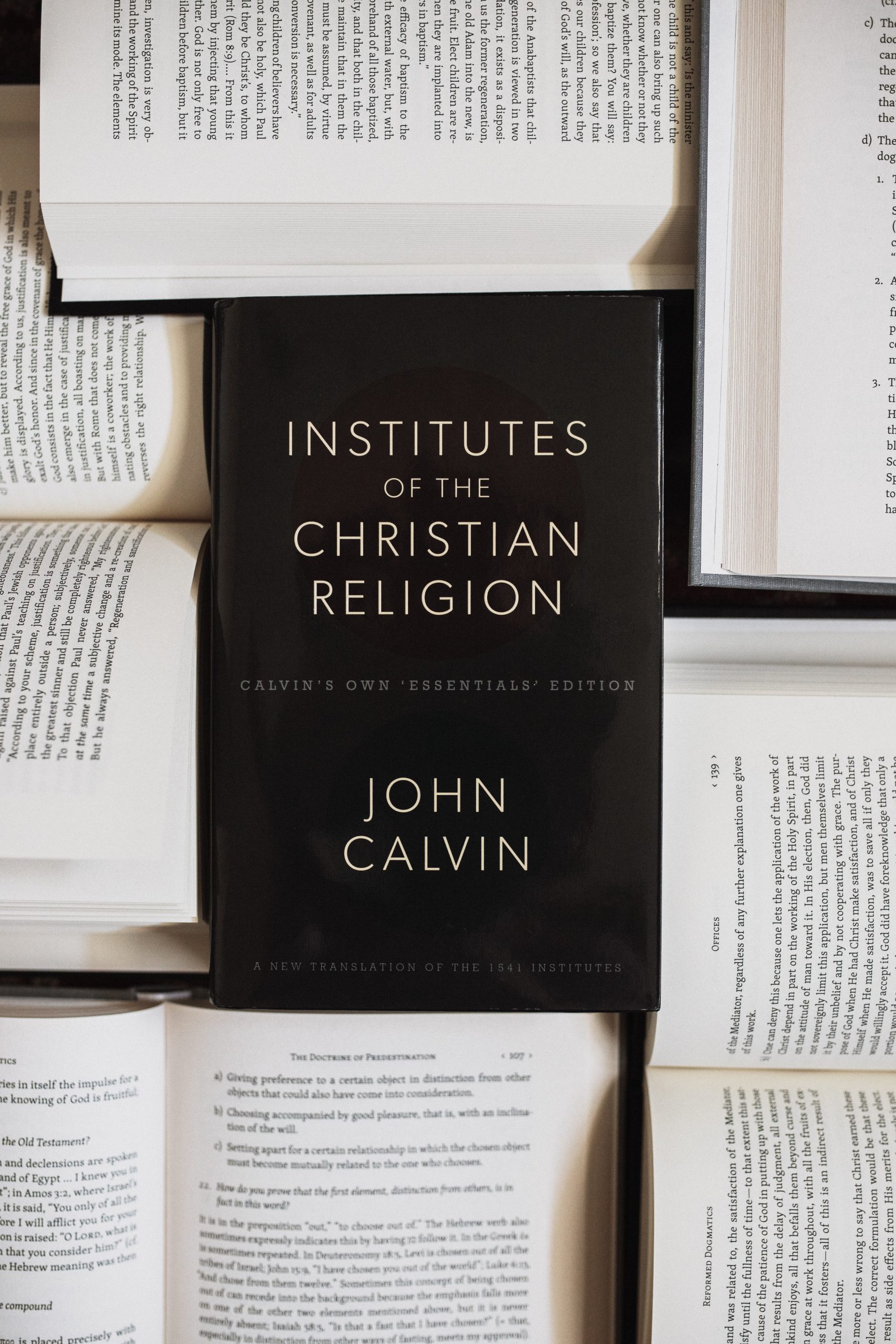“Don’t Be So Dogmatic!”

By Elizabeth Prata
My literal, autistic brain always saw things in black and white. I like it that way.
Only problem was, for the first 43 years of my life as a heathen, I sought and looked and searched for a match-up of a life manual that would agree that things were spelled out starkly. There HAD to be a place where there was no gray area. Non-Christians LIVE in the gray areas. Gray areas were my downfall. I knew that somewhere there was ‘right’ and ‘wrong.’ My mother always used to yell at me, particularly when we had moral conversations, “Don’t be so dogmatic!” But there is a right and a wrong…isn’t there?
Dogmatic: characterized by or given to the expression of opinions very strongly or positively as if they were facts.
(The Non-Christian world doesn’t believe the Bible is a fact. They believe it’s opinion).
Dogma: a doctrine or body of doctrines concerning faith or morals formally stated and authoritatively proclaimed by a church
When I was graciously saved, I learned that the Bible is that manual. Further, things were starkly spelled out in black and white. There were two sides to things. There is a right and a wrong. Furthermore, I learned that there’s-
black and white
love and enmity
in and out
narrow and wide
light and dark
righteous and lawless
justice and injustice
lost and saved
heaven and hell
There is no gray area. (I am not speaking of things not spelled out in the Bible where we use Christian liberty). There is no gray area. Gray areas, fence sitters, anything lukewarm…Jesus spits out of his mouth in a righteous vomit. (Revelation 3:16).
Morally, according to God’s law, there is a right and a wrong. God sets the Law. He is judge. He alone determines who is a transgressor.

In these postmodern Christianity days, we are so used to hearing about “my truth and your truth” we forget there is THE truth. (John 14:6). We’re so used to hearing about “the ‘hermeneutic of humility‘ where [t]he idea was to interpret God’s Word but stop short of coming to any definitive conclusions that would exclude alternative interpretations,” we forget that the entire Gospel is one of exclusivity- it excludes any other means of attaining heaven, excludes any other interpretation of how to get to heaven, and excludes any person who rejects Christ. We keep hearing about this famous “nuance” in interpretation that we forget that the Bible, thanks to the perspicuity of scripture and the aid of the Holy Spirit, can be and should be clear.
Sadly, this week someone said to me of the end time doctrines, also known as ‘Last Things’ or ‘Eschatology’ that “only the Father knows for sure.” Well, He knows how things will end because He ordained it, and He told us in the Bible. He didn’t spend 65 books speaking clearly and whiff it at the end, muddying the waters and petering out with a whimper of confusion and mystery.
We wrap too many clear doctrines with layers of gauze that should not be there, making the crystal, sterling, shining doctrines of God dim and shrouded in enigmas. In some cases, when it comes to our assurance of God’s will, His righteousness, and His intentions for His people, absolutely be dogmatic! God is the only God! He is holy! He will come again! We are all sinners! There is a hell! The end will come! Be clear and firm.
Here are some resources on both the Doctrines of God, and the perspicuity (clarity) of scripture. Strip back those layers and see God and His works for what they are, clearly amazing!
SERMONS
Martyn Lloyd Jones: Great Biblical Doctrines (all of them are on this list)
RC Sproul: For the Doctrine of the Trinity
Thomas Boston: The Sinfulness of Man’s Natural State, Doctrine of Sin (Read by Carlton Pruitt)
Truth for Life (Alistair Begg’s ministry) Rico Tice preaches the Doctrine of Hell in this sermon called “The Reality of Hell“
WA Criswell Great Doctrines of the Bible
pdf called The Night Watches by John MacDuff here, exploring,
The Glory of God, The Immutability of God, The Omnipotence of God, The Omnipresence of God, The Wisdom of God, The Holiness of God, The Justice of God, The Love of God, The Grace of God, The Tenderness of God, The Patience of God, The Faithfulness of God, The Sovereignty of God, The Providence of God, The Word of God, The Ordinances of God, The Spirit of God, The Promises of God, The Warning of God, The Chastisements of God, The Invitations of God, The Consolations of God, The Paths of God, The Secret of God, The Name of God, The Favor of God, The Jewels of God, The Judgment of God, God’s Banqueting House, The Presence of God, God’s Closing Call.
Biblical Doctrine: A Systematic Summary of Bible Truth, John MacArthur
Systematic Theology: An Introduction to Biblical Doctrine.
GotQuestions: What is Dogma?





